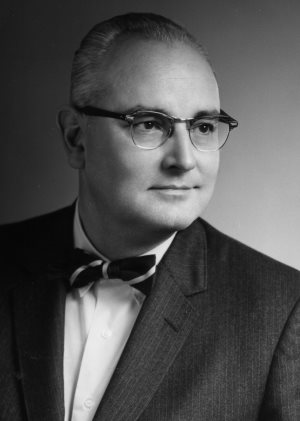Roderic M. Scott
About Optica
In Memoriam: Roderic MacDonald Scott, 1916 - 1994
30 December 1994
 Roderic M. Scott, Optica Fellow and winner of the David Richardson Medal, passed away in 1994. He was most known for his advancements in space exploration and satellite reconnaissance.
Roderic M. Scott, Optica Fellow and winner of the David Richardson Medal, passed away in 1994. He was most known for his advancements in space exploration and satellite reconnaissance.
Scott was born in Sandusky, Ohio, and earned his doctorate in Astronomy from Harvard University. His contributions during World War II played a pivotal role in the development of sonar technology.
At Perkin-Elmer Corporation, Scott initially served as Chief Engineer of the Reconnaissance Branch in the Electro-Optical Division and later served as Chief Scientist in the development of the mirrors for the Hubble Space Telescope.
In the early summer of 1964, Jack Maxey and Les Dirks, systems analysis staff engineers in the Central Intelligence Agency (CIA) Directorate for Science and Technology, approached Perkin-Elmer (declassified documents 17 September 2011) to work on a highly complex camera and develop reconnaissance equipment. As Chief Scientist, Scott played a pivotal role in the Fulchrum Project, which later evolved into the Hexagon Project. It would become an integral part of the US Satellite Reconnaissance Program. Scott suggested the use of air bars for the Sensor Subsystem. Scott’s team of engineers worked on this solution for over two and a half years. The success of the Hexagon program was critical in the development of HEXAGON KH-9 reconnaissance satellites.
19 HEXAGON missions took place during the Cold War and imaged 877 square miles of the Earth’s surface from 1971 to 1986. Scott’s contributions were critical in providing data for the national defense.
Optica (formerly the Optical Society) recognized Scott's technological advancements naming him a Fellow in 1963. In 1974, he received the David Richardson Medal “in recognition of his prolific contributions to optical science and technology, encompassing the academic, industrial, and governmental areas, with particular significance to photographic reconnaissance.”
Optica and the scientific community mourn his loss.
